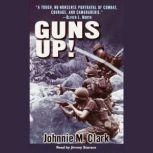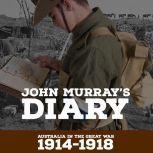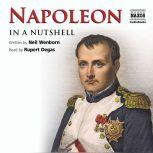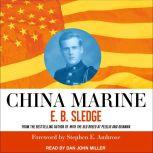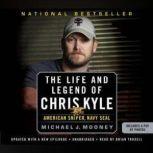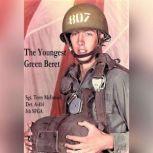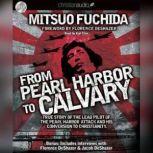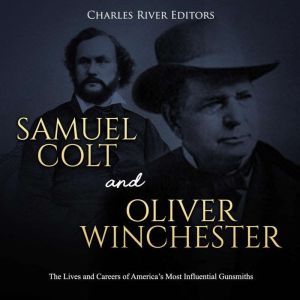
Details
Samuel Colt and Oliver Winchester: The Lives and Careers of America’s Most Influential Gunsmiths
Author: Charles River Editors
Narrator: Scott Clem
Unabridged: 2 hr 26 min
Format: Digital Audiobook
Publisher: Findaway Voices
Published: 08/23/2019
Synopsis
Gunsmiths in early 19th century America were helped along by noted artisans from Germany, Switzerland, and other European powers, but despite advances made in the European and American musket, the requirement of an exterior spark and percussion to ignite powder for a single-shot discharge remained the paradigm. Similarly, the era was unable to move past the cumbersome weapon that required at least half a minute to reload. The military compensation for such an ungainly and vulnerable process was the alternation of troop lines, in which one fired while the other reloaded from behind. Effective as that was in laying down constant fire and simultaneous reloading, the force as a whole was disabled by a large fraction, and the reloading soldiers were vulnerable to saber attacks on horseback as well.
Trapped in the same technological rut as future wars drew near in the new century, Samuel Colt entered the pool of visionaries in search of the invention that would tip the power balance in favor of those who possessed it. As an observant child of the Industrial Revolution, Colt would ultimately lead the way with the most defining design changes in weaponry, and through constant trial and error, he gave the military what it wanted despite fierce resistance and apathy: an answer to the reloading conundrum.
In the manner that Samuel Colt broke open the single-shot tradition in hand weapons, Oliver Fisher Winchester and his celebrated rifle shared the title of “the gun that won the West.” In the arena of portable arms, these two men dominated much of the technological and promotive aspects of 19th century weaponry, alternating between resisting and collaborating with rivals. While Colt created the first effective revolver mechanism for the handgun based on the technology of the ship’s wheel, it was Oliver Winchester who instituted 140 years of branding dominance by virtue of the first reliable repeating rifle.
by Charles River Editors
"Our country, right or wrong.” – Stephen Decatur Between the Revolutionary War and the Civil War, the United States engaged in several wars that have mostly been overlooked. The War of 1812 is one of America’s forgotten conflicts,...
Published: 10/19/2019
by Johnnie Clark
THIS GUT-WRENCHING FIRSTHAND ACCOUNT OF THE WAR IS A CLASSIC IN THE ANNALS OF VIETNAM LITERATURE."Guns up!" was the battle cry that sent machine gunners racing forward with their M60s to mow down the enemy, hoping that this wasn't the day...
Published: 01/02/2002
by Ian Patterson
Discover the story of Australia in the Great War through the eyes and stories of John Murray – a would-be journalist, aspiring artist and young soldier. John’s dairies capture the history, events and experiences of Australians, as each i...
Published: 10/16/2018
by Neil Wenborn
Napoleon is one of the giants of modern history. From the last days of the French Revolution to the epochal battle of Waterloo he bestrode the political landscape of Europe like a colossus, and the age to which he gave his name remains one of the mo...
Published: 04/26/2011
by E.B. Sledge
China Marine is the sequel to E. B. Sledge's critically acclaimed memoir, With the Old Breed: At Peleliu and Okinawa. Picking up where his previous memoir leaves off, Sledge, a young marine in the First Division, traces his company's movements and ...
Published: 07/20/2017
by Michael J. Mooney
New York Times bestseller The life story of Chris Kyle, the American Sniper Journalist Michael J. Mooney reveals the life story of Navy SEAL Chris Kyle, the American Sniper, from his Texas childhood up through his death in February 2013.A brutal wa...
Published: 04/23/2013
by Terry McIntosh
A true story about real people, espionage, and combat including the "Green Beret Affair" that shocked the nation in 1969. From working with a double agent who betrays his friendship and exposes a top secret cross border operation, Terry McIntosh wre...
Published: 04/30/2020
by Mitsuo Fuchida
Mitsuo Fuchida was a Captain in the Imperial Japanese Navy Air Service who is perhaps best known for leading the first air wave attacks on Pearl Harbor on December 7, 1941. Fuchida was responsible for the coordination of the entire aerial attack wor...
Published: 09/15/2011
by Multiple Authors
These amazing accounts of airmen recorded during the war include stories of air combat, music of the time, and recordings made on bomb runs over Europe and Japan. Eagles over Europe: (1) Introduction; (2) AAF Intro; (3) Bomb run over Germany, A-2...
Published: 01/01/2000


